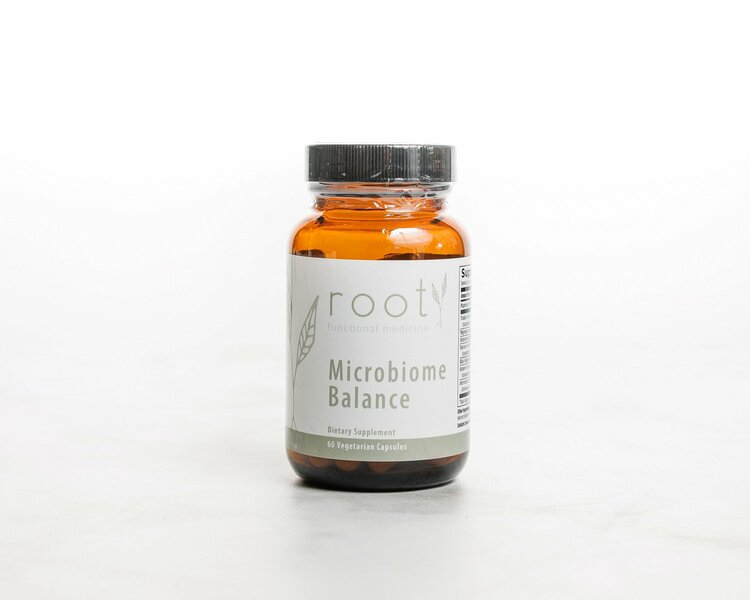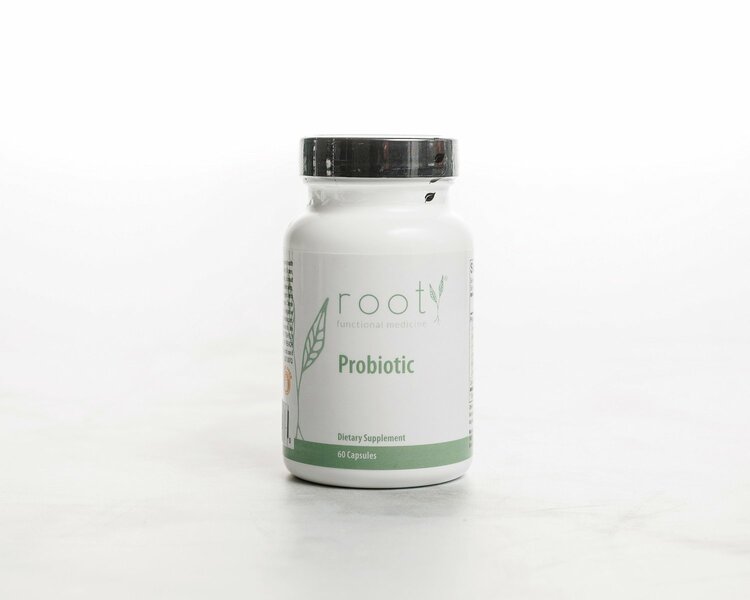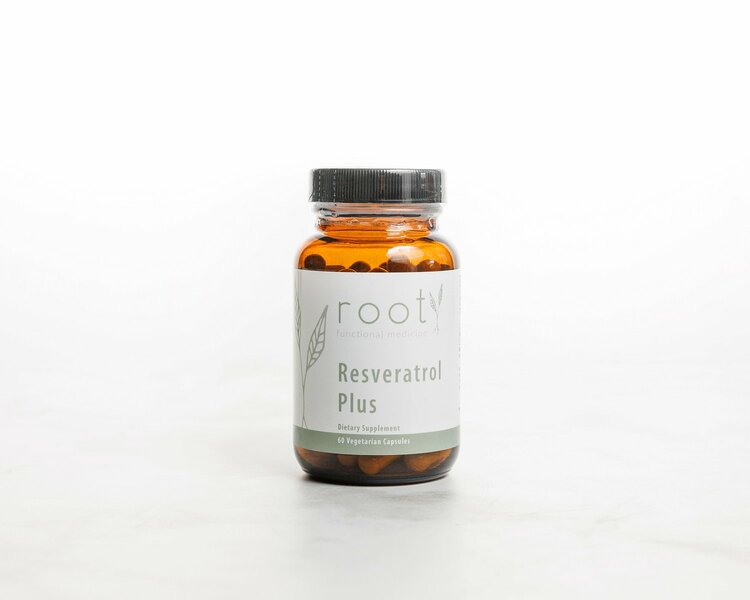
Beta Glucuronidase High
An enzyme is a protein in the body that helps speed up important chemical reactions. Beta-glucuronidase is a crucial enzyme for detoxification of hormones, environmental toxins, and medications. However, high beta-glucuronidase levels can cause unwanted symptoms and hormone imbalances.
In this article, we’ll explain the role of beta-glucuronidase, what high levels of this enzyme could mean for hormone and gut health, and potential functional medicine treatments.
What is Beta Glucuronidase?
Beta-glucuronidase is a very important enzyme produced naturally by certain intestinal bacteria and cells in your liver, intestines, and kidneys. This enzyme plays a crucial role in helping your liver detoxify excess hormones, environmental toxins, and certain medications. However, beta-glucuronidase is best known for its role in estrogen balance.
In women, the body is constantly producing estrogen, although the levels should fluctuate throughout your menstrual cycle. Once estrogen has served its purpose, your liver uses beta-glucuronidase to bind glucuronic acid to estrogen so the body can eliminate it in the stool. In the intestines, beta-glucuronidase enzymes break the bond between estrogen and glucuronic acid, and the estrogen that was meant to be excreted is then reabsorbed into the bloodstream. However, under normal circumstances, the body will eliminate more estrogen than it reabsorbs.
However, if you have high beta-glucuronidase levels, your intestines may reabsorb too much estrogen back into the bloodstream. This can lead to symptoms of estrogen dominance.
Figure 1: Gut Health and Hormones (Estrogen Metabolism)
Figure 1: Gut Health and Hormones (Estrogen Metabolism)

Estrogen Dominance
Estrogen dominance occurs when there is an imbalance between estrogen and progesterone levels in the body. These are two important sex hormones found primarily in women.
Symptoms of estrogen dominance may include:
Symptoms of estrogen dominance may include:
- Irregular menstrual cycles
- PMS (premenstrual syndrome)
- Mood swings
- Weight gain, especially around the hips and thighs
- Fatigue
- Decreased libido
While there may be various causes of estrogen dominance, high beta-glucuronidase levels is a common one we see in our practice.
What Causes High Beta-Glucuronidase?
Several factors can contribute to high beta-glucuronidase levels. However, poor gut health is one of the biggest. The gut microbiome plays a pivotal role in maintaining a healthy balance of hormones, and an imbalance in gut bacteria can lead to increased beta-glucuronidase activity. Factors such as antibiotic use, a high-sugar diet, and chronic stress can negatively impact gut health and contribute to an overgrowth of harmful bacteria.
Common causes of high beta-glucuronidase include:
- Dysbiosis (an imbalance of gut bacteria in the colon)
- Small intestinal bacterial overgrowth (SIBO)
- Frequent antibiotic usage
- Liver inflammation and/or issues with liver detoxification
- Overexposure to toxins or drugs
In our practice, we use GI MAP, a comprehensive stool analysis test, to identify gut infections, bacterial imbalances, and evaluate beta-glucuronidase activity. While we reviewed the impact of high beta-glucuronidase levels on estrogen, it’s also important to note that too much beta-glucuronidase in the gut causes the reabsorption of other unwanted toxins like pesticides, industrial pollutants, and mold mycotoxins.
Figure 2: An intestinal health snapshot from the GI Map test. This is one of many functional medicine tests we use to identify root causes.
Figure 2: An intestinal health snapshot from the GI Map test. This is one of many functional medicine tests we use to identify root causes.

How to Lower Beta-Glucuronidase
Because beta-glucuronidase is highly affected by gut health and the balance of gut bacteria, the primary intervention for reducing high levels of this enzyme is to treat the root causes of gut imbalance.
Feed Healthy Gut Bacteria
High-meat, high-fat, and low-fiber diets are linked to higher beta-glucuronidase levels (1). However, a high-fiber diet rich in fruits, vegetables, nuts, seeds, and whole grains feeds the healthy bacteria in your gut and subsequently starves the bacteria that tend to cause high beta- glucuronidase. You should aim to eat at least 25-35 grams of fiber per day, spread out throughout each meal and snack.
Here are a few high-fiber food choices to consider:
- ½ medium avocado - 4 grams
- ½ cup raspberries - 4 grams
- ½ cup beans - 6 grams
- 1 tablespoon chia seeds - 5 grams
- ¼ cup almonds - 4 grams
- 1 cup Brussels sprouts - 3 grams
Make sure to also increase your water intake, as too much fiber without enough water can cause constipation. Besides feeding the right gut bacteria, the goal of increasing fiber intake is to also encourage daily bowel movements for adequate estrogen elimination.
Treat Gut Imbalances
Dysbiosis and small intestinal bacterial overgrowth (SIBO) are common causes of high beta-glucuronidase. We can use the GI MAP stool test in our membership program to identify gut imbalances and develop a personalized gut healing protocol. In these scenarios, we may reduce bacterial overgrowth and dysbiosis with gentle (but effective) antimicrobial supplements like Microbiome Balance.
Consider Probiotics
After eliminating dysbiosis or bacterial overgrowth in the gut, consider supplementing with probiotics to further support gut health. Certain probiotics, like lactobacillus and bifidobacterium, can decrease beta-glucuronidase activity. We may suggest our Root Probiotic which contains seven of these useful strains. Fermented foods like yogurt, kefir, and sauerkraut are also excellent food-based sources of probiotics.
Limit BPA Exposure
Bisphenol A (BPA) is a chemical used in various plastic products, like food storage containers, paper receipts, and plastic water bottles. Drinking out of plastic water bottles or eating leftovers out of plastic containers can increase beta-glucuronidase levels. This is because your liver clears this chemical through the same glucuronidation process as estrogen.
While most products are listed as “BPA free” nowadays, manufacturers are simply replacing BPA with closely related chemicals, like bisphenol S. To reduce BPA or similar exposure, swap your plastic products for glass, stainless steel, or food grade silicone alternatives. Start with the items you use most, like your water bottle and coffee travel mug, and do not microwave your food in plastic containers.
Eat Foods with Glucaric Acid
Citrus fruits, apples, and cruciferous vegetables (broccoli, cauliflower, Brussels sprouts, cabbage etc.) provide glucaric acid to the body. This is a compound that is transformed in the stomach to a metabolite that inhibits beta-glucuronidase activity. Taking a supplement, like Calcium-D-Glucarate, may also provide this compound in higher concentrations to effectively reduce beta-glucuronidase (2).
Support Liver Detoxification
Your liver has a natural process in place to detoxify excess hormones, toxins, medications, and more. However, various factors can sometimes interfere with the liver’s ability to effectively eliminate hormones, like estrogen. Supplements that support liver detoxification and glucuronidation can indirectly lower beta-glucuronidase activity. We may suggest milk thistle or resveratrol for liver support.
Key Takeaways
Beta-glucuronidase is a necessary enzyme for detoxification in our body. However, when high beta-glucuronidase levels occur, many women notice symptoms similar to estrogen dominance, like mood swings, PMS, and decreased libido. You can lower beta-glucuronidase levels by eating a fiber-rich diet, balancing gut bacteria, limiting exposure to toxins, and supporting liver detoxification.
If you suffer from symptoms you think may be related to high beta-glucuronidase levels, our functional medicine team of doctors and registered dietitians are ready to help. Learn more about our functional medicine program.

Get to the Root at Home
Curious about where you should start your functional medicine journey?
Take our Get to the Root Quiz so you can start working towards reversing disease and optimizing your health at the Root cause.
Take the Get to the Root Quiz
Related Articles

Which Hormones Cause Weight Gain
Explore the intricate link between hormones and weight gain. Discover actionable tips for a functional medicine approach to sustainable weight management.

Ashwagandha for Hormones
Discover Ashwagandha's role in hormone balance. From PCOS to menopause, explore the benefits of incorporating this ancient adaptogen into your life.


